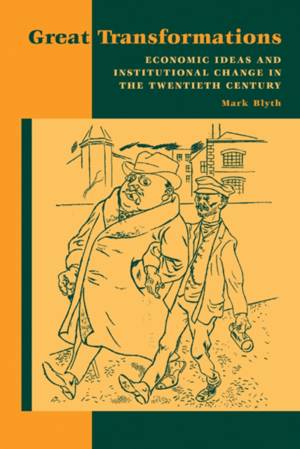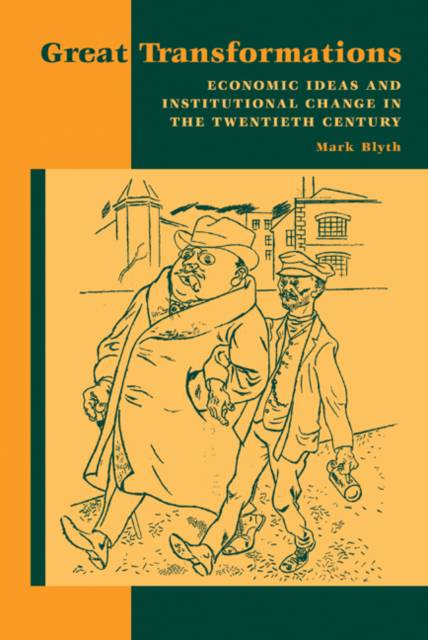
- Afhalen na 1 uur in een winkel met voorraad
- Gratis thuislevering in België vanaf € 30
- Ruim aanbod met 7 miljoen producten
- Afhalen na 1 uur in een winkel met voorraad
- Gratis thuislevering in België vanaf € 30
- Ruim aanbod met 7 miljoen producten
Zoeken
Great Transformations
Economic Ideas and Institutional Change in the Twentieth Century
Mark Blyth, Blyth Mark
Hardcover | Engels
€ 201,95
+ 403 punten
Uitvoering
Omschrijving
Mark Blyth argues that economic ideas are powerful political tools as used by domestic groups in order to effect change since whoever defines what the economy is, what is wrong with it, and what would improve it, has a profound political resource in their possession. Blyth analyzes the 1930s and 1970s, two periods of deep-seated institutional change that characterized the twentieth century. Viewing both periods of change as part of the same dynamic, Blyth argues that the 1930s labor reacted against the exigencies of the market and demanded state action to mitigate the market's effects by "embedding liberalism" and the 1970s, those who benefited least from such "embedding" institutions, namely business, reacted against these constraints and sought to overturn that institutional order. In Great Transformations, Blyth demonstrates the critical role economic ideas played in making institutional change possible and he rethinks the relationship between uncertainty, ideas, and interests on how, and under what conditions, institutional change takes place. Mark Blyth is an assistant professor of political science at the Johns Hopkins University specializing in comparative political economy. He has taught at Columbia University, and at the University of Birmingham, UK. Blyth is a member of the editorial board of the Review of International Political Economy.
Specificaties
Betrokkenen
- Auteur(s):
- Uitgeverij:
Inhoud
- Aantal bladzijden:
- 300
- Taal:
- Engels
Eigenschappen
- Productcode (EAN):
- 9780521811767
- Verschijningsdatum:
- 16/09/2002
- Uitvoering:
- Hardcover
- Formaat:
- Genaaid
- Afmetingen:
- 159 mm x 236 mm
- Gewicht:
- 539 g

Alleen bij Standaard Boekhandel
+ 403 punten op je klantenkaart van Standaard Boekhandel
Beoordelingen
We publiceren alleen reviews die voldoen aan de voorwaarden voor reviews. Bekijk onze voorwaarden voor reviews.







